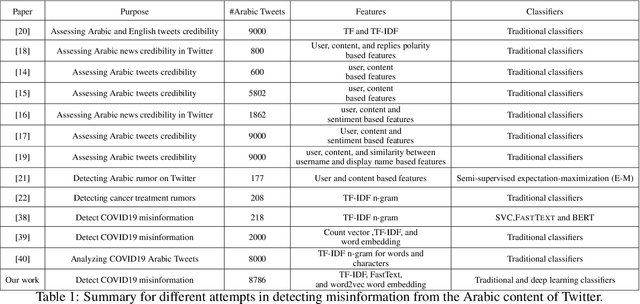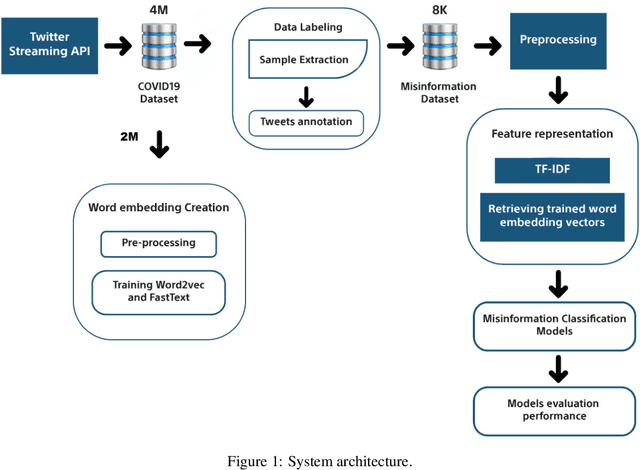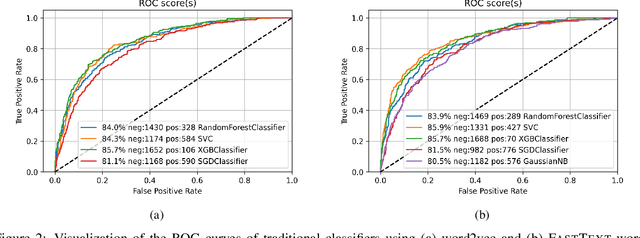Eating Garlic Prevents COVID-19 Infection: Detecting Misinformation on the Arabic Content of Twitter
Paper and Code
Jan 09, 2021



The rapid growth of social media content during the current pandemic provides useful tools for disseminating information which has also become a root for misinformation. Therefore, there is an urgent need for fact-checking and effective techniques for detecting misinformation in social media. In this work, we study the misinformation in the Arabic content of Twitter. We construct a large Arabic dataset related to COVID-19 misinformation and gold-annotate the tweets into two categories: misinformation or not. Then, we apply eight different traditional and deep machine learning models, with different features including word embeddings and word frequency. The word embedding models (\textsc{FastText} and word2vec) exploit more than two million Arabic tweets related to COVID-19. Experiments show that optimizing the area under the curve (AUC) improves the models' performance and the Extreme Gradient Boosting (XGBoost) presents the highest accuracy in detecting COVID-19 misinformation online.
 Add to Chrome
Add to Chrome Add to Firefox
Add to Firefox Add to Edge
Add to Edge